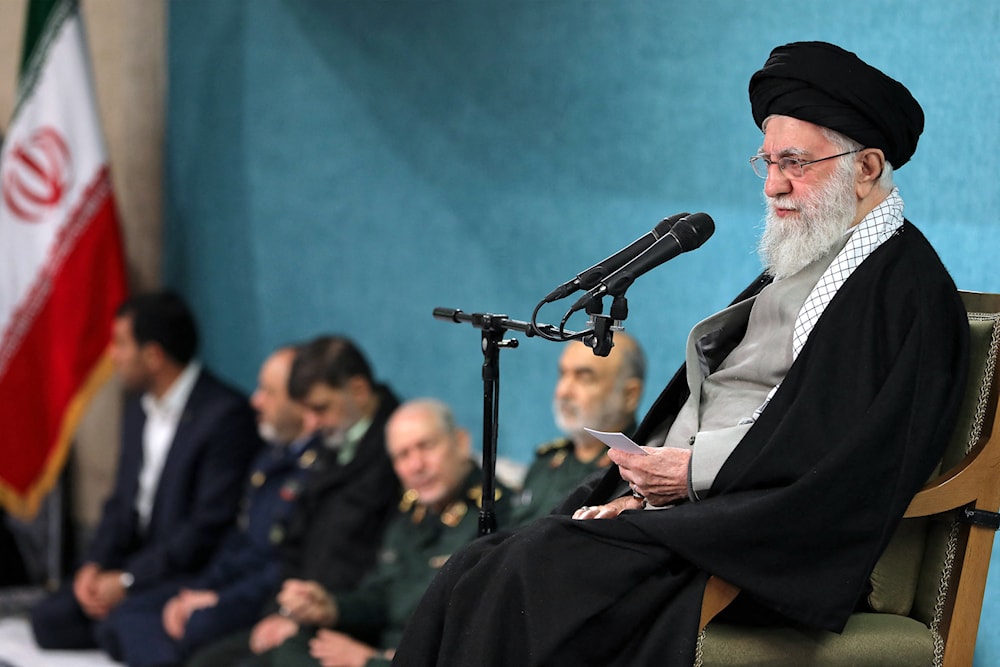Iran will not negotiate under 'bullying': Sayyed Khamenei
Iranian Foreign Minister Abbas Araghchi denies his country has received any letter from the United States.
-

This handout picture released by the office of The Leader of the Islamic Revolution and the Islamic Republic of Iran, Sayyed Ali Khamenei, shows him speaking during a meeting with Iranian government officials in Tehran on March 8, 2025 (Photo by KHAMENEI.IR/AFP)
The Leader of the Islamic Revolution and the Islamic Republic of Iran, Sayyed Ali Khamenei, denounced Saturday what he described as "bullying tactics", a day after US President Donald Trump revealed that he had sent a letter to the Iranian leadership and threatened military action against the country.
In a Fox Business interview, Trump indicated that "there are two ways Iran can be handled: militarily, or you make a deal" to prevent Tehran from obtaining nuclear weapons.
"Some bully governments -- I really don't know of any more appropriate term for some foreign figures and leaders than the word bullying -- insist on negotiations," Sayyed Khamenei told officials.
The Iranian Leader asserted that such bullying powers seek to impose their own demands.
"The insistence of some bullying governments on negotiations is not to resolve issues ... Talks for them is a pathway to have new demands, it is not only about Iran's nuclear issue ... Iran will definitely not accept their expectations," he underscored, without directly naming the United States or referring to Trump's letter.
"They are bringing up new demands that certainly will not be accepted by Iran, like our defence capabilities, missile range and international influence," Sayyed Khamenei was quoted as saying.
Meanwhile, Iranian Foreign Minister Abbas Araghchi said on state television that his country has not received any letter from the United States.
"We have also heard of it (the letter) but we haven't received anything," Araghchi told reporters on Saturday.
He added that Iran has never and will never agree to negotiations that imply coercion.
Earlier, the Iranian Foreign Minister Araghchi told AFP on Friday that Tehran would not negotiate under "maximum pressure".
Trump reinstated his maximum pressure policy on Iran upon returning to the White House in January. Under this approach, the United States withdrew from the 2015 nuclear deal—formally known as the Joint Comprehensive Plan of Action (JCPOA)—in 2018.
The JCPOA, signed between Tehran and Western powers, had provided sanctions relief in exchange for limits on Iran’s nuclear activities.
In recent months, Tehran has engaged in diplomatic efforts with Britain, France, and Germany to address concerns surrounding its nuclear program.
However, on Saturday, Sayyed Khamenei criticized the three European nations for claiming that Iran had failed to meet its nuclear commitments under the JCPOA.
"You say that Iran has not fulfilled its commitments under the JCPOA. Okay, have you fulfilled your commitments under the JCPOA?" he responded.
Iran has consistently denied pursuing nuclear weapons, maintaining that its nuclear program is strictly for peaceful purposes. Officials have frequently referenced a religious decree issued by Sayyed Khamenei prohibiting the development of such weapons.
Read more: Iran rejects UK's accusations of threatening national security

 3 Min Read
3 Min Read








